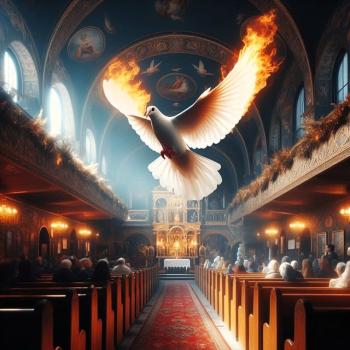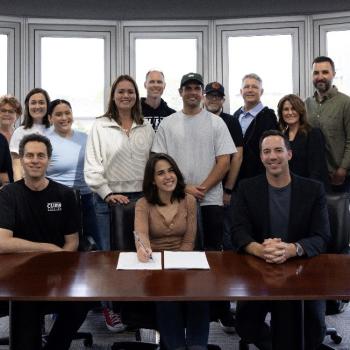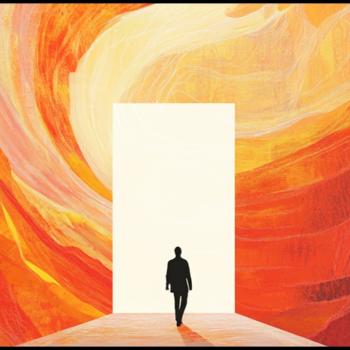‘Faith in the resurrection is a central expression of the Christological confession of God’ (p. 118). To put it in other terms, Resurrection is a doctrine pertaining, out of all the persons of the Trinity, most eminently to Christ. What is distinctive about God the Son? What relates to Him which doesn’t relate in the same way to God the Father or God the Holy Spirit? His Incarnation. His Resurrection. His Ascension. This is what Ratzinger means here.
‘The presence of the risen Christ transforms faith into a realized claim on the future, filling it with the certitude of the believer’s own resurrection’ (p. 129f.). With any given article of our faith, such as Christ’s resurrection, it’s reasonable to wonder – perhaps you have wondered, when reciting the Creed – “What does this mean, in real terms, for humankind?” As is often the case with German theologians of the 20th Century, Benedict is keen to resolve this question…
When we come to Christ in faith, we stake a claim to His triumph over death as if it were our own victory. Therefore, we can be certain that, after death, newness of life awaits. Chris Tarrant – on the British game show, Who Wants to Be a Millionaire? – had a memorable catchphrase: “It can be done. It has been done.” Previous contestants have taken home the coveted six-figure sum, so today’s hopefuls can too. Because Jesus is risen, we will also share in the luminous world to come.
What else does Resurrection signify? Well, ‘It signifies that now, after Christ, there is no longer a closed heaven. Christ is in heaven: that is, God has opened himself to man, and man,’ the Holy Father envisions, ‘when he passes through the gate of death as one justified, as someone who belongs to Christ and has been received by him, enters into the openness of God’ (p. 138). Christ’s risen life is the paradigm of that which awaits believers after death. Man is in heaven right now, in the person of Christ. Heaven’s door, like the Temple curtain rent in two, stands open for the Faithful.
The Blessed Sacrament is the means whereby we can enter the door. ‘Christ is the tree of life from whence we receive the food of immortality’ (p. 158). This is why we receive Holy Communion. Adam ate from a tree which brought him destruction. Christ is the tree which brings us restoration. ‘For as in Adam all die, so in Christ all will be made alive’ (1 Cor. 15.22). God’s priest, aided by the liturgy, shakes the bough. The people of God eat and are satisfied.
The one thing on which almost everyone agrees – fans of the late pope, as well as his detractors – is that Benedict was a gifted theologian. As I thumb through his Eschatology, this reputation seems to me well deserved.
As noted above, Ratzinger seamlessly links Christian beliefs with practical experience and existential worries. He notices connections between doctrines. Hence the faith’s internal coherence is implicit in the book. We may have lost a talented thinker in Benedict XVI, one whose lofty mind was vibrant as a peacock, but we can expect a revival of interest in His late Holiness’s writings. He certainly leaves behind a body of work which will occupy theology students for generations to come.





